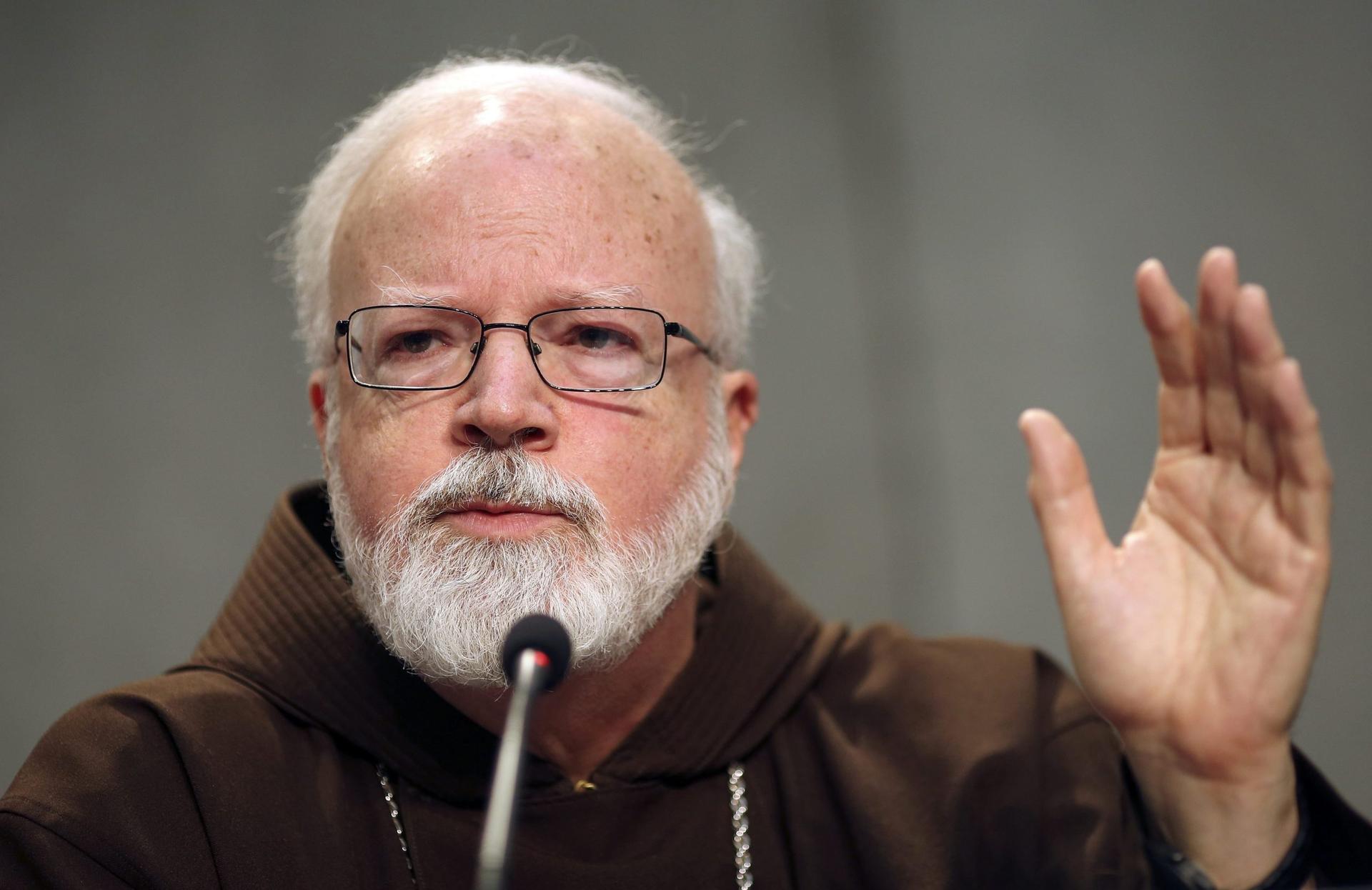ROME – In a new interview, Cardinal Sean O’Malley of Boston spoke out against American critics of Pope Francis with ties to the EWTN television network, insisting that despite this opposition, the pope enjoys broad support in the United States.
A key papal advisor, O’Malley spoke to veteran journalist Elisabetta Piqué in an interview published in Argentine paper La Nacion Friday.
Referring to the strong criticism and even opposition of Francis coming from some camps in the United States, O’Malley said that among the laity, “There is a lot of support for the Holy Father, even among non-Catholic Americans, who view this pontificate with enthusiasm.”
Asked whether the problem was with the bishops, O’Malley said, “Not all bishops…some.”
He said the U.S. bishops’ conference is “polarized,” but that it’s difficult to put a percentage on the number of opponents to Francis in the conference.
“There are also some bishops who are linked to a more conservative policy, and the Holy Father himself has commented on the situation of the EWTN television (a large American Catholic network), where many times the commentators are very critical of the Holy Father, at least of his ideas,” O’Malley said.
His remark was in reference to comments Pope Francis made during a conversation with fellow Jesuits during his visit to Slovakia in September, where he spoke about his critics and specifically pointed to “a large Catholic television channel that has no hesitation in continually speaking ill of the pope.” Networks and media outlets that attack the pope, he said, do “the work of the devil.”
At the time, Francis, who was still recovering from a colon surgery over the summer, also said there were some people that “wanted me to die” after the operation, and who were already preparing a conclave.
RELATED: Media critical of the pope do ‘the devil’s work,’ Francis says
Although he did not specifically mention EWTN, the pope’s words were widely seen as a jab at the network, which regularly features content and commentary that is critical of Pope Francis, and which has come under fire for tying itself to a partisan political agenda.
EWTN’s president and CEO, Michael Warsaw, is a consultor to the Vatican’s communications department, and Archbishop Jose Gomez, president of the U.S. bishops’ conferences, is an EWTN board member.
Archbishop Christophe Pierre, the Vatican’s envoy to the U.S., told British Vatican journalist Christopher Lamb in an interview published in 2020 as part of Lamb’s book, “The Outsider: Pope Francis and His Battle to Reform the Church,” that he had previously expressed his concern to Warsaw over EWTN’s coverage of Pope Francis.
O’Malley – who serves as a member of the pope’s council of cardinals advising him on matters of Church governance and reform, is chair of the Papal Foundation, and is president of the Pontifical Commission for the Protection of Minors (PCPM) – said another problem for the U.S. Church is the number of “young conservative clergy” who develop distorted views of Pope Francis due to the influence of social media.
Yet despite the criticism Francis has faced, O’Malley said he believes, “the vast majority of Catholics are very much in favor.”
Speaking of the pope’s health, O’Malley described Francis, who turned 85 on Dec. 17, is “full of life and enthusiasm,” and “very recovered after his operation” over the summer, in which roughly 13 inches of his lower intestine was removed.
O’Malley, who was recently in Rome for a Dec. 12-14 meeting with the PCPM and a separate, Dec. 13-15 meeting of the council of cardinals, said that despite having just made a 5-day trip to Cyprus and Greece, Pope Francis was “very strong and energetic.”
“I know that there are rumors that his health is very delicate, but that is very exaggerated,” he said. “I see that the Holy Father is in good health and with a lot of spirit, a big desire to continue with his ministry.”
Referring to the pope’s remarks to Slovak Jesuits about prelates hoping for a conclave, O’Malley said that given Francis’s age, such talk is “inevitable.”
“There are certain people who would like to see a new pontificate, although the vast majority of Catholics love the Holy Father very much, and I, as a cardinal, do not want to participate in another conclave,” he said.
O’Malley voiced his belief that Francis’s work “is still unfinished, he has a mission and I hope that he can continue for several more years to finish his mandate.”
He also spoke of the Church’s fight against the clerical sexual abuse crisis, saying he believes “we have made giant steps since Francis arrived.”
“This is not to say that there is not a long way to go, but at least for now it is a topic of great importance in the Church and in all countries,” he said, and stressed the importance of the Church’s commitment to “transparency and zero tolerance.”
“There is nothing more important in the Church at this time,” he said, “because if we do not solve the problem of sexual abuse and the protection of minors, how are we going to carry out evangelization? People will not trust us.”
O’Malley also spoke of the cardinals’ council, composed of prelates from different countries and continents around the world, saying he believes the advisory body has managed “to have a direct communication with pastors from different parts of the world, without filters, in an atmosphere of great trust.”
“In this sense we have been able to contribute a lot to the Holy Father,” he said, voicing his belief that the meetings will continue, and that this type of advisory process is “part of Pope Francis’s notion of synodality.”
He also spoke about the ongoing, three-stage Synod of Bishops on Synodality, and touched on the issue of corruption and Vatican finances.
Follow Elise Ann Allen on Twitter: @eliseannallen














